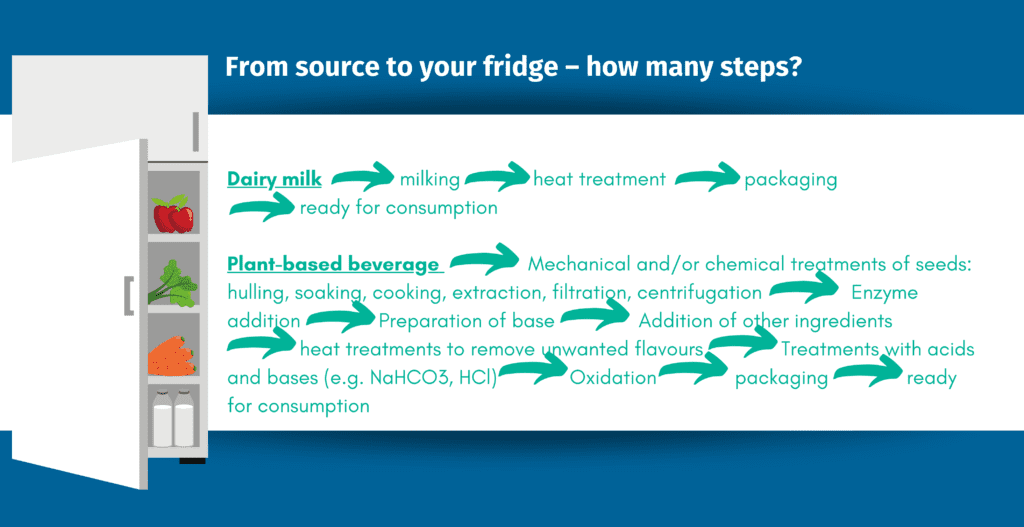
Today, there are innumerable food and beverage choices catering to every lifestyle — dairy, dairy-free, soy-free, gluten-free, lactose-free, vegan and more. While it’s great to have a range of choices to fit individual needs and wishes, not all options are nutritionally equal, nor do they have the same impact on our planet.
Dairy’s true impact on climate change
Contrary to what some believe, per unit the dairy sector has one of the smallest carbon footprints of all animal products in the world. The overall contribution of milk production and transportation represents 2.7% of GHG global emissions. A recent report by the by the UN Food and Agriculture Organization (FAO) found that between 2005-2015 emissions from milk production decreased in emission intensity by almost 11%, whilst simultaneously dairy production increased by 30%. Over the past 50 years the methane from dairy production has declined in industrialized nations, not just per kg of milk, but in total, demonstrating the significant impact of actions already taken by the sector to operate more sustainably. The result: GHG emissions per kilogram of milk produced decreased 11%, or about 1% per year.
Affordable, sustainable nutrition
More than 80 percent of the world’s population, or about 6 billion people, regularly consume liquid milk or other dairy products, according to the FAO report. Why? Dairy products are nutrient dense foods, supplying significant amounts of energy, protein and micronutrients, including calcium, magnesium, selenium, riboflavin, and vitamins B5 and B12. According to the FAO report, dairy products are the fifth largest provider of energy and the third largest provider of protein and fat for human beings and an important source of affordable nutrition to meet recommended levels.
There are about 133 million dairy farms globally. Over 600 million people live on dairy farms including 80 million women, around 37 million of whom head up their farms. Not to mention that milk, dairy product and ingredients are strongly traded products making dairy farming and processing are integral to national economies and individual livelihoods. In short: eliminating dairy cows and dairy farming from the planet would be highly disruptive to the world’s food supply and economic and social structure.
What’s in my drink?
It may seem an obvious thing to say but milk contains milk! Plant-based beverages may look like milk – but they’re rarely just plant extracts mixed with water. They often include several other added ingredients to improve the nutrient content, ‘mouthfeel’ or taste, including synthetic vitamins, sweeteners, thickeners and more. We took a look at the ingredients and claims made on a number of plant based products in our office recently and were stunned to find the sheer number of ingredients many of which were by no means natural and yet they are marketed as wholesome ‘made from plants’ products.
Even when fortified with vitamins and minerals, many ultra-processed plant-based drinks consistently fall short of the whole nutritional package that milk naturally provides – nor do they benefit from the beneficial effects of the Dairy Matrix.
From source to your glass
Plant-based beverages require lots of processing steps before they are ready to be consumed:

Unsurprisingly given all these steps, unlike milk, plant-based beverages also produce large amounts of waste and hard-to-dispose by-products, which isn’t great for the planet.
Choose milk
Whether you choose real dairy milk, or an alternative made with plant-based ingredients, you should know what’s in the product you’re buying, how it’s made and its impact on the planet. Nobody but you should be making that choice for you. My choice is milk because it’s a nutrient dense, affordable and sustainable source of food. Milk is hard to beat on taste and quality. Join me and choose milk as part of your healthy, sustainable diet!








